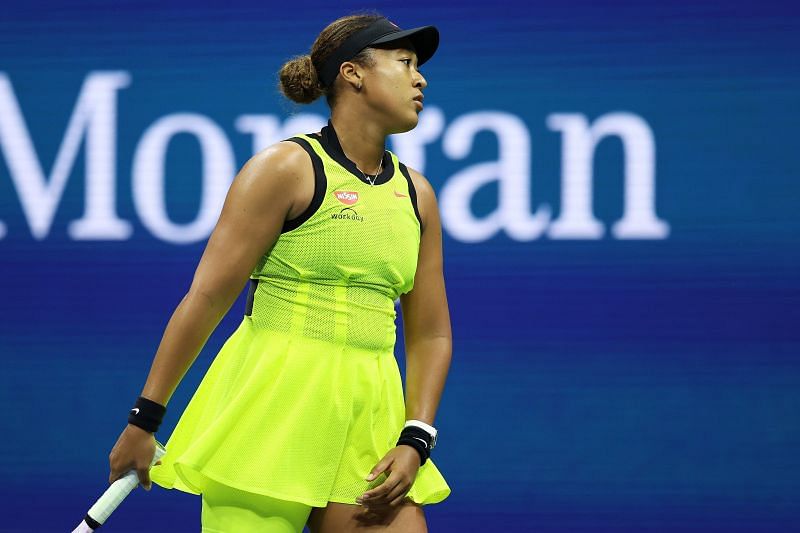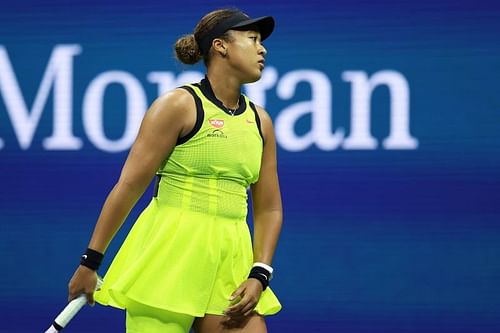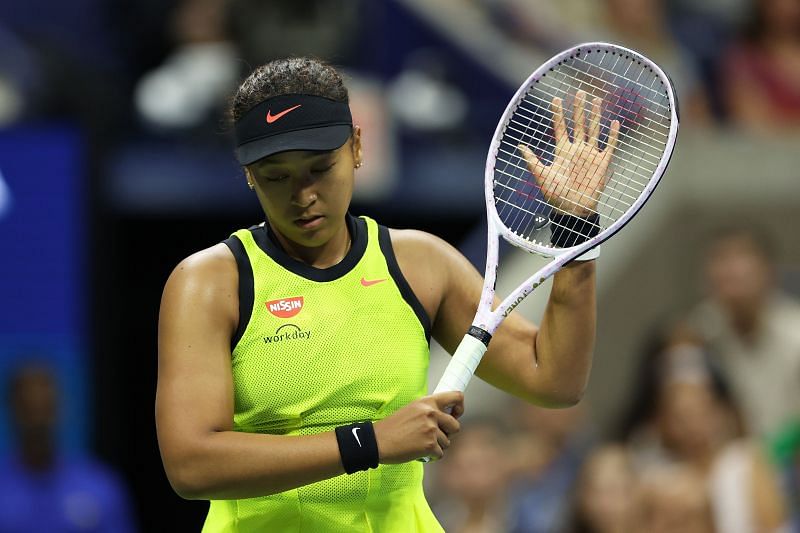
Naomi Osaka and the continuing conversation on mental health

Two-time US Open and defending Champion Naomi Osaka suffered an unexpected third-round loss to Canadian teen Leylah Fernandez 5-7 7-6(2) 6-4 on Friday. But while the loss itself was a surprise, what Osaka said in the aftermath of the match was even more eye-opening.
The Japanese star's post-match press conference spoke volumes about the current state of her mental health, and painfully reflected the intense pressure faced by top athletes. Her words conveyed the mental health challenges of high-level sport better than even a 1,000-word essay could.
Elaborating on her mindset after the loss, Osaka revealed that she no longer feels happy or excited about winning.
"How do I go around saying this? I feel for me recently, like when I win I don’t feel happy. I feel more relieved. And then when I lose, I feel very sad," she said. "I guess we’re all dealing with some stuff, but I know that I am dealing with some stuff."
Over the last few months, Naomi Osaka has been been unapologetically vocal about the non-physical challenges affecting her. But her latest statements, and subsequent breakdown during the interview, go beyond what she alone is facing.
There have been several instances recently of athletes being encouraged to come forward and speak about their struggles. Many in the sports industry are trying their best to promote mental health awareness and normalize such struggles, even as the stigma around it is slowly dissipating. But when athletes like Naomi Osaka spell out exactly what is troubling them, it helps put the whole issue into better perspective.
While reflecting on her current situation, the World No. 3 also considered taking a break.
"I honestly don't know when I'm going to play my next tennis match," Osaka said. "I think I am going to take a break from playing for a while."
But while the defending champion had copped plenty of criticism for her press conference boycott (for the sake of protecting her mental health) at Roland Garros, this time she has received a lot of support. Billie Jean King urged Naomi Osaka to "take all the time" she needs, while James Blake asserted it was more important for the Japanese to be happy than for her to play tennis.
Naomi Osaka brings to light the cobwebs that exist in every athlete's mind

The backbone of a professional athlete has always been accepted to be their physical fitness. Few players have openly spoken about the importance of maintaining a balance between physical and mental fitness. But in recent times, players have become more aware and accepting of mental health coaches as permanent members of their entourage.
Naomi Osaka’s unequivocal stand to take a break and get better reveals the kind of struggles athletes face, and also how their performances on the field can't be attributed to their physical strengths alone. That's especially true of top players, who have to deal with increasingly higher amounts of pressure with every step upwards that they take.
An athlete like Naomi Osaka - and also someone like Simone Biles, or Ben Stokes - is expected to do well every time they step on the field. And that expectation can sometimes become a crippling impediment, as Osaka's recent losses show.
Furthermore, with multiple tournaments all year round, the players have to be at their absolute best week in and week out. They have to produce their peak performance on the court, even as their behavior and attitude off it are scrutinized too.
In other words, athletes are under immense pressure all the time. While some are able to handle it, there are others who occasionally succumb to their inner demons. And that's completely okay.
As Dominic Thiem said recently, Naomi Osaka has earned the right to take a break if she feels that is what she needs. Now it is up to the authorities, audiences and people in general to accept and acknowledge the various pressures faced by athletes, and grant them allowances without prying or asking too many questions.
Osaka’s latest performance and interview prove what players go through, and no one can brudge them the desire to keep their mental well-being in check. We hope the Japanese gets better and keeps her head high in whatever she does in the future; she is a champion whether she ever returns to the court or not.